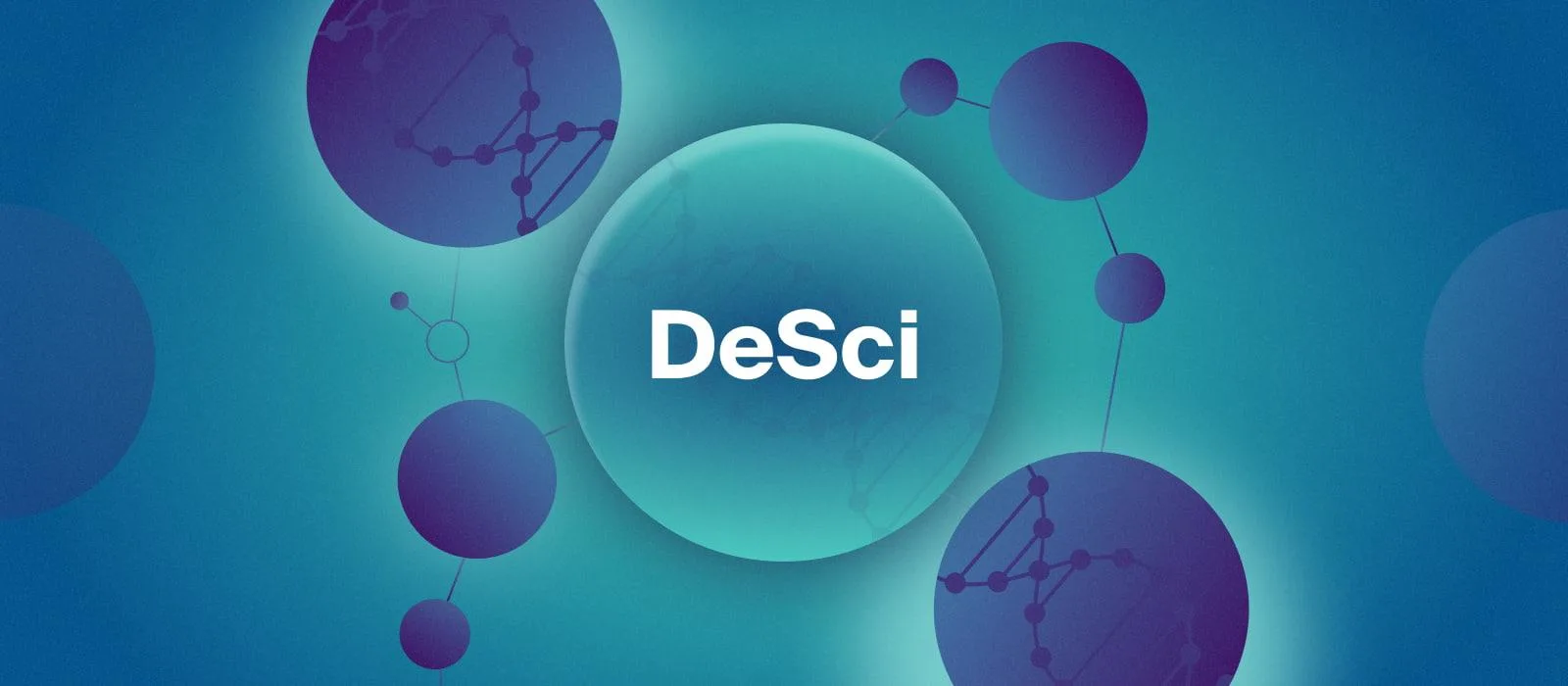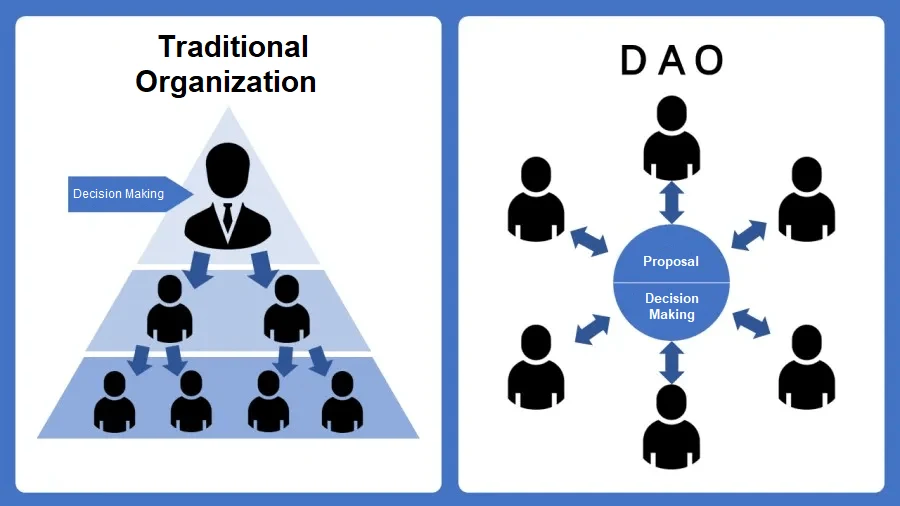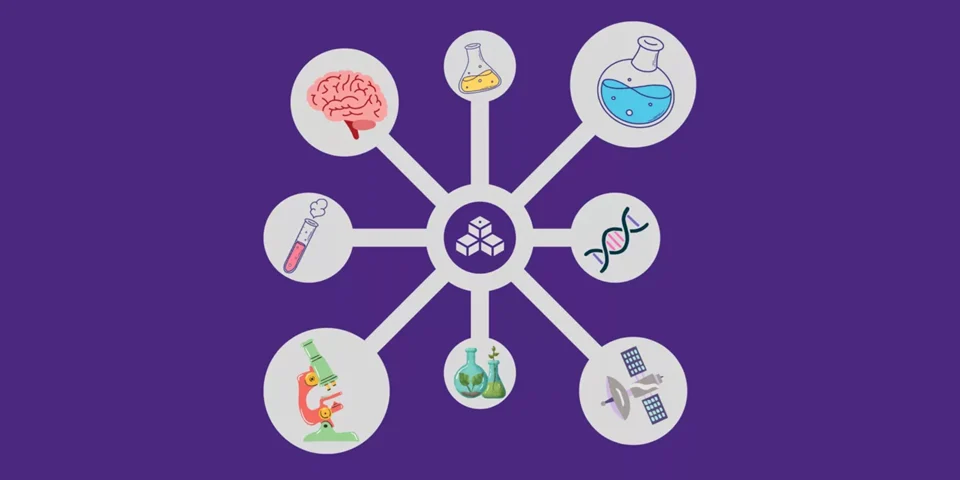Decentralized Science (DeSci) is a revolutionary movement for change within the scientific establishment. Leveraging blockchain technology and distributed networks, DeSci facilitates wider access to research, encourages international collaboration, and improves transparency and reproducibility in science.
Here, we discuss the guiding principles underlying DeSci, its building blocks, the value it provides to researchers, the barriers to overcome, and the future of scientific discovery and innovation that it can create.
Key Takeaways
- DeSci uses blockchain to bring about a new, open, incentivized, and community-based model for science.
- It targets the major problems in traditional science: funding scarcity, data sharing restrictions, and issues in publishing and collaboration.
- With blockchain, DeSci is making scientific records trustworthy and permanent, while reducing barriers to entry.
Understanding Decentralized Science (DeSci)
What is DeSci? At its core, DeSci seeks to break centralized choke points in science, creating an open, clear, and fair research world. Decentralized networks can serve as opportunities for scientists and organizations to avoid gatekeepers, leading to more inclusive and diverse community involvement.
DeSci advocates emphasized collective ownership and mutual accountability. Blockchains are used as an immutable ledger of scientific data, which is shared on open access by conserving its integrity. Cryptocurrency means new models for research funding and incentives for collaboration and reproducibility, which traditional systems can never do.
In a world where the pace of innovation is often slow due to insufficient funding, locked data, and closed systems, DeSci is an innovation game-changer.
Data Ownership via IP‑NFTs
IP-NFTs Intellectual Property Non-Fungible Tokens (IP-NFTs) is a pioneering method for the management and trading of Intellectual Property rights via blockchain. These are the personalized digital signatures of ordinary NFTs and come with corresponding legal intellectual property (IP), including copyrights, patents, and trade secrets. This allows for secure and transparent ownership and facilitates smooth collaboration and licensing of scientific inventions.

Token Incentives & DAO Governance
DeSci includes the concept of decentralized governance via DAOs (Decentralized Autonomous Organizations) and token incentives. In this framework, governance tokens provide the right to vote on various decisions that impact the direction, operations, and funding of DAO. Such a model aligns the community’s interest with the success of the organization because contributors are both financially and strategically invested in progress that contributes to the bottom line.
How Does DeSci Work?
Decentralized Science is a global movement that leverages blockchain and Web3 technologies to reimagine how scientific research is funded, published, reviewed, and accessed. Its goal, essentially, is to do science more openly, transparently, and communally.
Researchers can turn to crypto crowdfunding or DeSci Decentralized Autonomous Organizations. These DAOs pool community funds and then vote to distribute them, bypassing traditional grant systems. For example, VitaDAO finances longevity research with a DAO governance structure.
Scientific records and publications can be permanently saved to the chain or decentralized storage such as IPFS. Scientific work (papers, datasets, protocols) can be represented as NFTs, providing authors with provenance and monetization primitives. This pushes back against paywalled journals and gatekeeping.
Researchers own their data and can sell licenses to it through smart contracts. Permissionless cross-border collaborations with on-chain coordination tools and on-chain bounties are possible with DeSci.
Innovators earn on-chain reputation by contributing, reviewing, and being recognized by the community and establishing a more merit-based community.

DeSci disrupts the publishing monopoly, democratizes funding and access, promotes reproducibility and transparency, and helps level the scientific playing field by allowing underfunded or young investigators to compete globally.
Key Use Cases of DeSci
Now, let us consider several successful use cases of DeSci, the apps that changed the way, the scientific industry works.
Open-Access Repositories
Decentralized science open-access repositories are intended to facilitate research transparency and accessibility using blockchain and open-source initiatives. These repositories distinguish themselves from traditional ones with their dynamic research environments, to which versioned research objects are contributed in a decentralized and democratic manner.
Transparent and Equitable Funding
DeSci provides transparent and fair funding mechanisms through the use of blockchain and Web3. This means decentralized autonomous organizations and quadratic funding let communities vote on research initiatives and ensure the funding is transparent with the money going directly to where it is intended, instead of into opaque, traditional structures.
Incentives for Reproducibility
Decentralized Science, uses token-based incentives and reputation systems to nudge towards reproducibility in research. This comprises incentivizing for peer review, data sharing, and replications as well as transparency and accountability via blockchain.
Improved Data Sharing
DeSci seeks to address accessibility, transparency, and trust issues in research by using decentralized platforms, creating incentives for open access, and maintaining the quality of data integrity with functionality such as unchangeable records and tokenization.
Modernized Research and Publishing
DeSci draws on technology from the Web3 stack, such as blockchain and DAOs, to bring research and publishing into the present, creating a more open, transparent, and community-driven approach to innovation in science. It attempts to fix what it sees as wrong with the traditional science model, including paywalls, data-sharing restrictions, and obscure funding sources.
Benefits for the Scientific Community
The disadvantages of the traditional scientific ecosystem have solutions in DeSci. The democratizing potential is among the most radical tendencies, enabling every person to contribute to humanity’s total store of knowledge, unencumbered by the control of central institutions. Many scientists consider DeSci as a way to increase transparency by requiring that research methods and data be made available, thereby preventing fraud and inspiring confidence in scientific results.
Furthermore, global collaboration is facilitated since localizable platforms allow researchers to widely share information and resources. Furthermore, DeSci provides non-traditional funding models, which also decrease dependence on traditional grant programs and opens avenues for new funding sources for cutting-edge research. Together, these elements contribute to a more inclusive and transparent science, one that is better able to withstand possible threats.
Challenges and Limitations
Despite the promising potential, DeSci encounters a set of challenges to be addressed for its sustained success. One significant obstacle is the high entry barrier of the blockchain and associated techniques which may prevent unfamiliar researchers from joining it. Besides, adoption is complicated by legal and regulatory unknowns, in particular those surrounding cryptocurrency and decentralized governance.
Scalability is another thorny issue, the existing decentralized technology system may not be ready to accommodate the massive amount of scientific data and work being done online. Further, data privacy and security have been an open problem on the technical as well as ethical/philosophical aspects in a decentralized environment. Arguably, more importantly, acceptance and trust in traditional science have yet to come.
Notable DeSci Tokens & Projects
Much of what vexes traditional science arises from systemic inefficiencies: bureaucratic inertia, misaligned incentives, and centralized control are stymying innovation. Decentralized Autonomous Organisations are a game changer, giving a new form of hierarchy suited to fund, control, and perform research more efficiently.

One cannot address the DeSci crypto landscape without acknowledging the expanding web of DAOs that epitomize the movement’s values. What unifies these societies is the collective mission to transform science and offer communities to work within. Interoperability between scientific DAOs isn’t just common, it’s necessary. All of this makes up a burgeoning ecosystem remaking the way science is financed, distributed, and conducted.
OriginTrail (TRAC)
OriginTrail has a purpose-built Decentralized Knowledge Graph (DKG) framework that allows easy integration of any data source, as well as a scalable decentralized network for performing complex supply-chain queries. It started doing blockchain-based supply chain tracking but now digitizes any real-world asset that has provenance. The architecture of the decentralized system is two-layered:
- Layer 1: Blockchain (Ethereum, Gnosis, polygon, Polkadot);
- Layer 2: Off-chain, P2P DKG network to store and validate "Knowledge Assets".
This is the pioneer protocol in verifiable decentralized data. Its key strengths are real enterprise adoption, a non-inflationary token model, and a multi-chain and AI-friendly nature.
VitaDAO
VitaDAO is a trailblazing collective funding early-stage research to extend healthy human life. It helps raise capital to fund promising scientific projects and spin out startups to commercialize innovations. Pfizer is among the backers of VitaDAO, which has already raised $4.1 million.
One VitaDAO trend to highlight is the democratization of access to next-generation therapeutics in decentralized biotech. It is an attempt to decentralize the ownership of scientific ideas, making them available around the world and competing with the monopoly system of patent control that has characterized the pharmaceutical industry to date.
ValleyDAO
ValleyDAO is the decentralized community of scientists democratizing access to the technology of the future, synthetic biology, a discipline with the potential to solve our world’s most pressing problems of sustainability.
Synthetic biology, using both engineering and biology techniques has the potential to provide answers for climate change, prevention of diseases, sustainable food for agriculture, and clean energy. The project backs efforts to produce bacteria capable of consuming pollutants, grow more nutritious crops, and derive renewable sources of energy from biology.
GenomesDAO
GenomesDAO is based on the idea that everyone should have the complete right to their genomic information. It dreams of building the world’s largest user-owned genomics database used by the public, researchers, and companies.
With the secure DNA Vault and Genomes mobile app, you'll remain in control of your data and keep it private. Concurrently, academics and biotech and pharmaceutical companies can access de-identified data to more deeply understand disease mechanisms and develop new treatments, all without violating individual rights.
AthenaDAO
AthenaDAO fills a need for effective medicines, methods, and techniques for women’s health. There are few treatment options and little public awareness, yet conditions such as menopause, PCOS, and endometriosis are pettily bypassed by global disease burden databases.
AthenaDAO is creating a decentralized worldwide collective to lead change in women’s health. Through the backing of ovarian aging, uterine fibroids, and associated conditions research, and the investigation of computational modeling and emerging therapies, AthenaDAO will reinvent the discovery and care of women’s health throughout the lifespan.
What Is the Future of DeSci?
The potential future of DeSci is exciting and radical in its impact – it’s changing the way science is funded, validated, and shared.
Research ecosystems with tokenization. NFTs will be obtained by tokenizing research papers, datasets, protocols, and lab notebooks. Therefore, there will be more ways for researchers to monetize and license their work, own the data, and go around the centralized publishers.
Crowdfunded, global science using DAOs. Research DAOs will compete with traditional grant organizations. Scientific discovery is open to funding or influence by anyone who has access to the Internet, not just governments or universities. Research priorities become democratized, a patient-led medical research or citizen-backed climate study type of thing.
Traceable research provenance. All research data will be timestamped and tracked on-chain, facilitating greater reproducibility, integrity, and trust in results (a huge improvement over the opaque way it happens today).
Decentralized peer review. On-chain peer review systems that are transparent will replace slow and anonymous traditional reviews. This leads to faster publication, public accountability, and acknowledgment/rewards for reviewers.
Integration with AI and computation. The AI model can only be trained based on verifiable scientific data, which facilitates better research integrity, and traceable citation.
New models of tokenized research incentives. Scientists will get DeSci tokens for publishing, reviewing, contributing data, or even running experiments, turning academia’s “publish or perish” model, into one of transparent, reputation-based contributions.
An entirely decentralized science in crypto where knowledge is open, transparent, decentralized, and owned by no one but the scientists themselves, DeSci might be for science what DeFi was for finance: a way to unlock innovation, lower friction and distribute power more evenly.
Conclusion
The intersection of blockchains and scientific decentralized research has the potential to make significant inroads into perennial issues from outdated and slow-moving peer review systems to IP disputes and a lack of available funds.
As opposed to traditional pharma monopolies, DAOs could provide a transformative alternative to these by using aligned, collective communities that more efficiently allocate capital and labor towards helping patients. Although in their early infancy, DAOs are an exciting frontier in the evolution of DSCI.
But it’s important to note that while blockchain offers the building blocks of decentralization, the future of DeSci may be eligible for more than just blockchain. The real opportunity is what new technologies and innovative governance models can do to augment and complement the scientific process to make it more effective.


